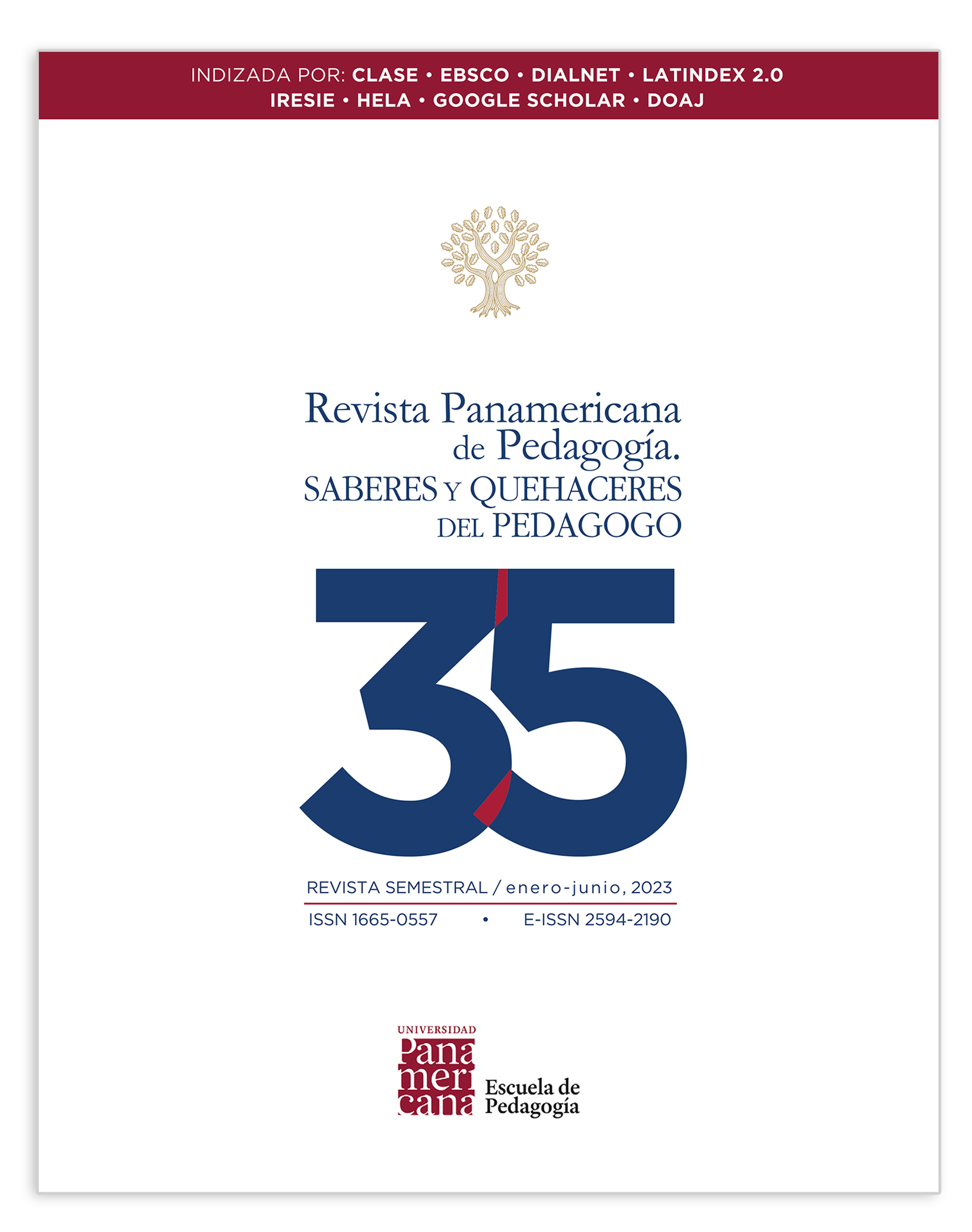Publicado 31-12-2022
Palabras clave
- filosofía de la educación,
- fenomenología,
- aula,
- hermenéutica,
- universidad
Derechos de autor 2022 Revista Panamericana de Pedagogía

Esta obra está bajo una licencia internacional Creative Commons Atribución-NoComercial-CompartirIgual 4.0.
Cómo citar
Resumen
Este artículo se sitúa en una aproximación filosófica y holística de la teoría crítica educativa (Freire, 1992; Agamben, 2004; Illich, 2011; Bauman, 2013; Biesta, 2009), que muestra la insuficiencia del proyecto racionalista moderno, donde la ciencia pedagógica se orienta a la adopción de estándares de medida y evaluación de la calidad educativa. Parte de la hipótesis que la práctica educativa universitaria ha estado centrada, durante las últimas décadas, en la trasmisión dogmática-técnica de contenidos y la adquisición de competencias para satisfacer el mercado laboral. En este panorama institucional de orientación tecnocrática, mi objetivo es señalar, a través de una metodología fenomenológica-hermenéutica, otra experiencia educativa, la del aula universitaria; apelando a tradiciones filosóficas (Heidegger, 2005; Gadamer, 2001; Van Mannen, 2003), recurriendo a la narrativa fenomenológica, presente en los relatos vivenciales de participantes en el aula de clase universitaria e interpelando a varias voces autorizadas en la materia se manifiesta, como hallazgo, una estructura ritual configurada por diferentes elementos constitutivos del aula, esenciales para la formación: la palabra, la atención, la pr egunta, el encuentro y la conversación.
Referencias
- Adorno, T. (1998). Educación para la emancipación (Jacobo Muñoz). Madrid, España: Morata
- Agamben, G. (2004). Estado de excepción. Buenos Aires, Argentina: Adriana Hidalgo.
- Arendt, H. (1996). Entre el pasado y el futuro. Ocho ejercicios de reflexión. Barcelona, España: Península.
- Bárcena, F., Larrosa J., y Mélich, J. (2006). Pensar la educación desde la experiencia. Revista portuguesa de pedagogía, 40(1), pp. 233-259.
- Biesta, G. (2009). Good education in an age of measurement: On the need to reconnect with the question of purpose in education. Educational Evaluation, Assessment and Accountability, 21(1), pp. 33-46.
- Boadu, G. (2021) Giving voice to teachers through interpretative phenomenological research: a methodological consideration. Qualitative Research Journal, 21(4), pp. 408-423.
- Byung-Chul, H. (2019). La desaparición de los rituales. Barcelona, España: Herder.
- Canguilhem, G. (1976). El conocimiento de la vida. Madrid, España: Anagrama
- Clandinin, J. (2008). Narrative Inquiry: A Methodology for Studying Lived Experienced. In Research Studies in Music Education, 27, pp. 44-54.
- Delory-Momberger (2009). Biografía y educación. México: CLACSO
- Freire, P. (2010). Cartas a quien pretende enseñar. Buenos Aires, Argentina: Siglo XXI. Freire, P. (1995). La Pedagogía del oprimido. Buenos Aires, Argentina: Siglo XXI.
- Fullat i Genis, O. (1992). La educación y sus saberes. Revista de Educación, 1(2), pp. 146-166.
- Gadamer, G. (2001). Verdad y método. I y II. Salamanca, España: Ediciones Sígueme.
- Heidegger, M. (2005). Ser y tiempo (Jorge Eduardo Rivera). Madrid, España, Trotta.
- Husserl, E. (2011). La idea de fenomenología. Barcelona, España: Herder.
- Jaeger, W. (2001). Paideia. Los ideales de la cultura griega. Barcelona, España: Herder. Illich, I. (2011). La sociedad desescolarizada. Buenos Aires. Argentina: GodoT.
- Emilio Lledó (1970). Filosofía y Lenguaje. Barcelona, España: Ariel.
- Masschelein, J., y Simons, M. (2014) Defensa de la escuela. Una cuestión pública. Buenos Aires, Argentina: Miño & Dávila.
- Nietzsche, F. (2001). Sobre el porvenir de nuestras instituciones educativas. Barcelona, España: Tusquets.
- Sellar, S. Lingard, B. (2013). The OECD and Global Governance in Education. Journal of Education Policy, 28(5), pp. 710-725.
- Suarez, D. (2011). Relatos de experiencia, saber pedagógico y reconstrucción de la memoria escolar. Revista Belo Horizonte, 27(1), pp. 387-416.
- Vallone, M. (2005). La documentación narrativa de experiencias pedagógicas. Buenos Aires, Argentina: OEA.
- Van Manem, M. (2003). Investigar la experiencia vivida. Barcelona, España: Paidós.
- Vesga, J. (2013). Cultura organizacional y sistemas de gestión de la calidad: una relación clave en la gestión de las instituciones de educación superior. Revista Guillermo de Ockham, 11(2), pp. 89-100.






